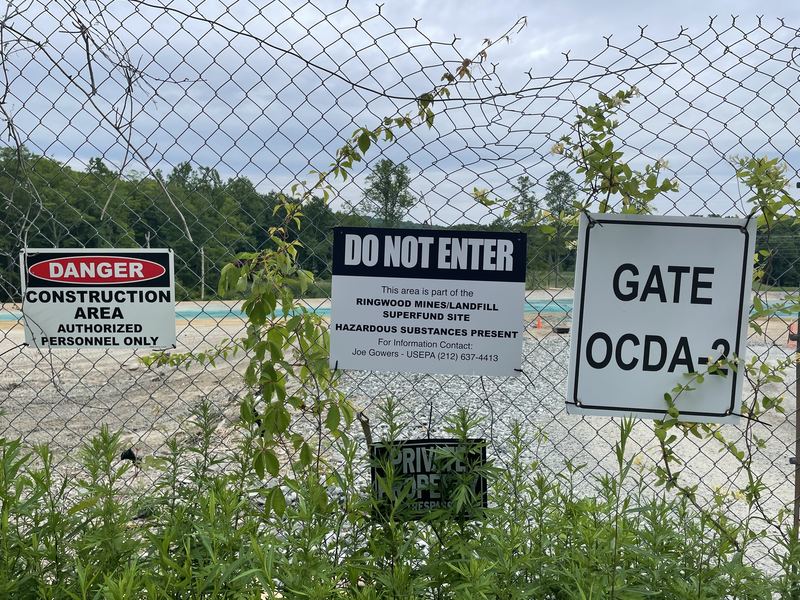
Peter’s Mine Road is plastered with signs. On one side, they say “congratulations class of 2022.” On the other, they say “Superfund site.”
Pollution in this area of Ringwood, New Jersey dates back to 1967, when the Ford Motor Company began dumping paint sludge and other hazardous byproducts from their Mahwah car factory on land surrounding a defunct mine. But for a while nobody knew – especially not the indigenous people who lived there. The U.S. Environmental Protection Agency didn’t designate the site for federally-managed Superfund cleanup until the 1980s.
Those toxic chemicals remain at the center of a decades-long fight, waged largely with the Ramapough Lenape Nation’s Turtle Clan.
Two weeks ago, New Jersey’s Department of Environmental Protection (DEP) and the state Attorney General’s office filed a new lawsuit against Ford, saying the automaker was “fully aware” of the harm it was causing to Ringwood and the ancestral lands of the Ramapough.
Most of the area’s residents were and continue to be members of the Turtle Clan. Chief Vincent Mann said the community’s way of living off the land unknowingly sealed their fate.
“They were harvesting wild medicinals. They were drinking the water,” Mann said. “In all of those things was all the toxic chemicals that was disposed of there by Ford Motor Corporation, allowed by the town of Ringwood.”
According to the new civil complaint, Ford later sold or donated the land to municipal governments and residential developers without fully disclosing the contamination they’d left behind. By 1973, the company no longer owned any land at the site.
Click listen in the player to hear the story, and visit Gothamist for more details.
This story is part of Covering Climate Now’s ‘Food & Water’ joint coverage week.
